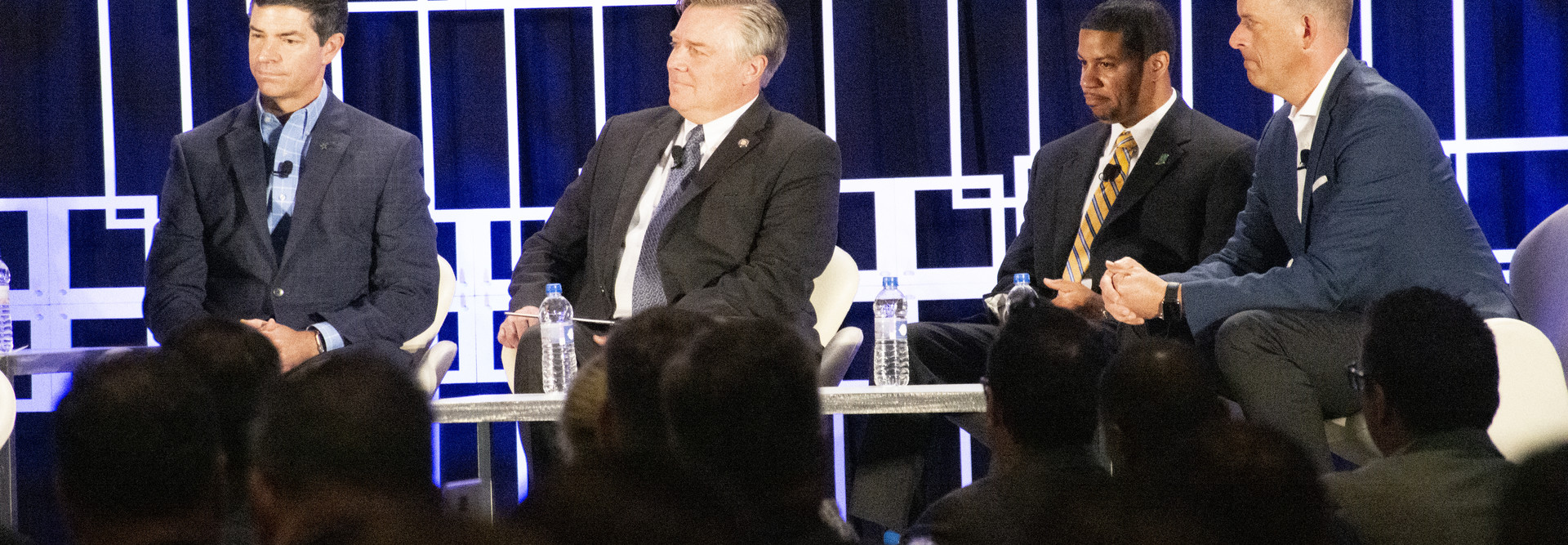NASCIO Midyear 2019: 5 Essential Traits by Extraordinary CIOs
Three of five state CIOs interviewed for a paper titled “The Extraordinary CIO: 5 Essential Traits That You Can Develop” discussed the "soft skills required for a tough role" in a panel Tuesday during the midyear conference of the National Association of State Chief Information Officers outside Washington, D.C.
Participating in the discussion were Utah CIO Mike Hussey, Indiana CIO Dewand Neely and Mississippi CIO Craig Orgeron. They exchanged thoughts with Josh Nisbet, managing director of Deloitte Government and Public Services, and Teri Takai, executive director of the Center for Digital Government.
The paper identified the five essential traits as emotional intelligence, integrative skills, political savvy, unifying vision and relentless curiosity.
Framing the conversation, Nisbet said, "Many of us are put in situations where we are asked to lead, but we may not own all of the resources that we are asked to lead."
As such, there is some acknowledgement that salesmanship is involved in leading efforts that encompass multiple agencies, he added. CIOs often must form "a coalition of the willing" to share a vision and resources. These integration skills prove particularly valuable in times of transition, such as when new governors take office, Nisbet said.
CIOs Say Soft Skills are Important for Success
A snap audience poll during the panel ranked emotional intelligence as the most important of the five traits, and Takai asked the three state CIOs which of the five traits they value most.
Hussey pointed to relentless curiosity. "It has proved lucrative as we have learned how to push ourselves in Utah," Hussey said. "It's part of me."
People become excited to explore possibilities and to change their daily tasks, Hussey said. "As an agency, you get momentum and you find opportunities that you didn't know existed," he added.
Hussey encouraged IT officials to "lift your gaze." Becoming too focused on tasks at hand prevents people from seeing "the art of the possible," he said.
Neely highlighted political savvy as most important to him. "It's about having a seat at the table and making sure that the state views you as the leader of a technology organization and not just ‘the IT guy,’" Neely said. "You are there to help the state deliver services the best you can."
Often, Neely said, he will seek to form relationships with other leaders and listen to their concerns to bond over shared problems. In simply listening, Neely discovered he could slowly start a dialog after establishing a rapport.
"Make your face known so that your voice is heard," Neely advised.
Orgeron emphasized emotional intelligence, stressing the importance of self-awareness — or what others might call mindfulness.
"When you're always the person answering the questions, you're not listening all that well," Orgeron cautioned. "That's a bad place to be."
He recalled a midnight negotiation at the Mississippi state capital where a legislator was fighting a bill important to the IT agency. Orgeron laid out his position, but the opposition wasn't listening. The CIO took a lesson from the experience: Listen to the opposition more often. "I was consumed with telling and not letting him tell," he said.
MORE FROM NASCIO19: Discover why Utah prioritized inventory after a critical data breach
Tech Leaders Identify Ways to Unify Vision
Deloitte's Nisbet spotlighted some tactics for communicating a message and recruiting people to share a vision, including creating visuals and producing talking points.
"We should converse to uncover how things are resonating. Are we aligned? If not, how are we falling short? Is the message becoming unified?" Nisbet asked.
In another audience poll, more than half of those participating identified unifying vision as the essential trait most important to the concept of CIO as broker championed by NASCIO.
Neely called for inclusion to "make sure the team includes the rest of the state in what they are trying to do," while Nisbet observed that it's too easy to "make the mistake of assuming alignment" while people around the table nod their heads. Nisbet identified unified vision as a trait he would most like to improve on, advocating for an "agile approach" to creating consensus: Produce a concept, hold conversations about it and then modify the concept as required to gain consensus.
Mutual respect and collegiality have become even more valuable, Orgeron said. "In today's environment, those are traits that are exceedingly valuable," he said.
Read more articles from StateTech’s coverage of NASCIO Midyear 2019 here.






.jpg)



